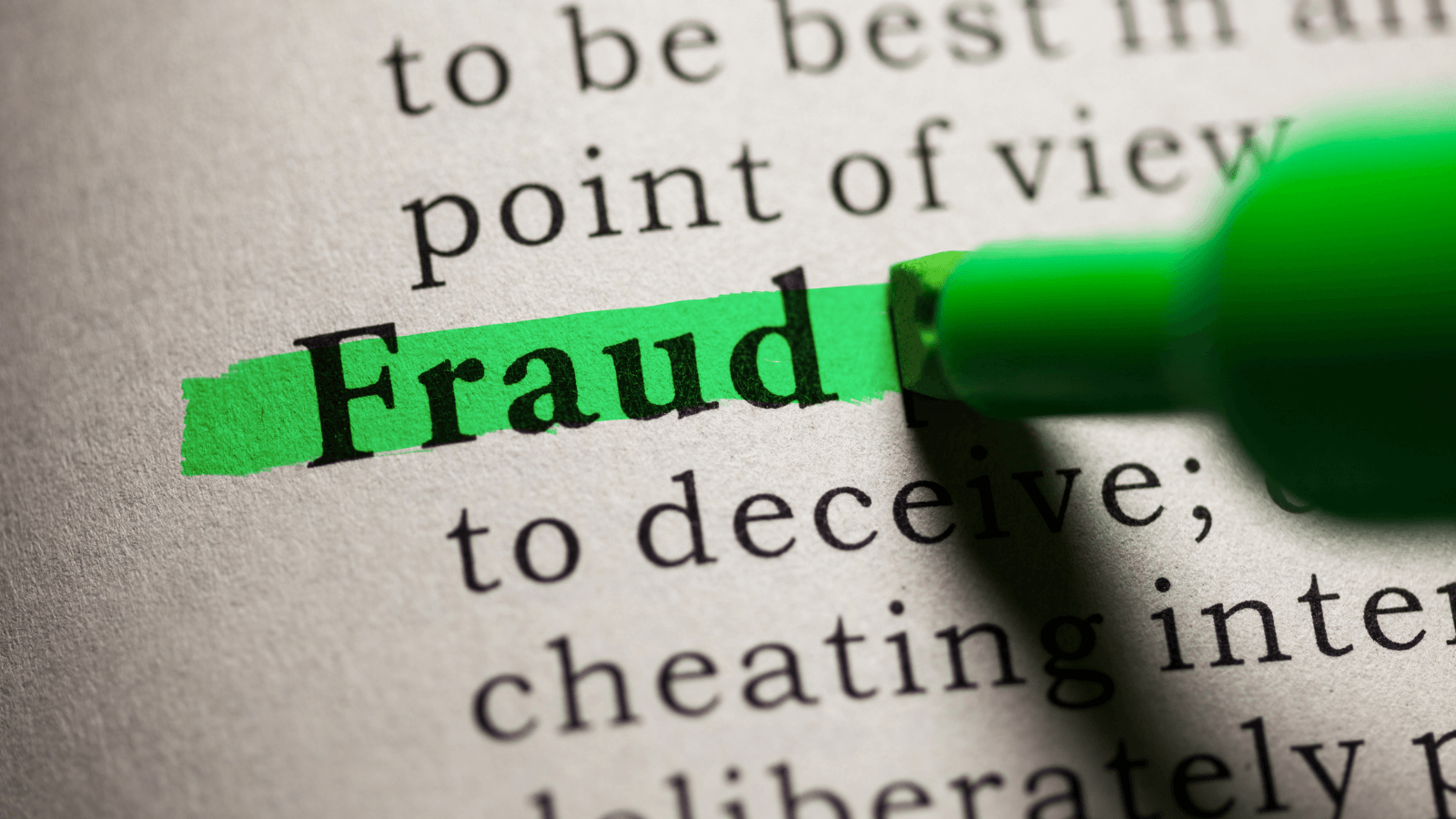You might hear the word “fraud” thrown around often in everyday conversation, but fraud is a criminal action that is taken very seriously in North Carolina. An accusation of fraud can have a huge impact on your life and future.
Fraud is a very broad category of crime and many different activities can be considered fraud, so it’s important to educate yourself on what constitutes fraud in order to avoid any severe consequences and to protect your legal rights.
What is fraud?
Fraud is a form of theft and is generally considered a white-collar crime. As a broad term, fraud refers to acts intended to use deliberate deception or misrepresentation of facts to deprive someone of money or possessions.
Fraud always includes a false statement, misrepresentation of fact, or deceitful conduct. A prosecutor must always prove beyond a reasonable doubt that a perpetrator has knowingly and intentionally deceived in order to convict them of fraud. However, a victim of fraud can always bring forward a civil case, even if grounds for a criminal case are not met.
Types of fraud
Because fraud has such a broad definition, fraud crimes are grouped into numerous subcategories. Some of the more common types of fraud include:
- Identity theft: Like fraud itself, identity theft is a broad term that encompasses any criminal activities where someone wrongfully obtains and misuses another person’s personal identifying information. This is done in a way that involves fraud or deception and is typically for the perpetrator’s own economic gain. This can be something like going through someone’s trash to find their banking information or social security number, and then taking out a credit card or loan in their name and without their knowledge. Congress passed a law in 1998 making identity theft a federal crime.
- Check fraud: Paying for something by check or money transfer when you know you don’t have the funds to cover the payment. Check fraud can be hard to convict in court because a prosecutor needs to prove beyond a reasonable doubt that you knew you didn’t have enough funds when you wrote the check.
- Healthcare fraud: When medical professionals bill insurance, Medicare, or Medicaid for services they did not provide, they commit healthcare fraud. Typically, this is done by billing multiple times for the same procedure, billing for procedures that are more expensive than the ones actually performed, or by staggering billing out over a longer period of time for services that should have otherwise been bundled, in order to charge more.
- Tax fraud/tax evasion: Reporting false information on your tax returns or failing to file a tax return when you should are both forms of tax fraud, with the latter more specifically being called tax evasion. Typically, tax fraud occurs by either lying about your income or lying about your deductions in order to pay less in taxes. If the IRS believes you have committed tax fraud, you can be audited and fined, or face more serious penalties.
- Wire fraud: Any form of fraud that is carried out using electronic communications, like a phone or the internet. In wire fraud, perpetrators use electronic communications to misrepresent themselves in exchange for financial gain or to gain identifying information about someone in order to carry out identity theft. Making a purchase with a stolen credit card, soliciting donations for fake charities through email, fake ransom phone calls, or spam emails from someone claiming to be in a different country asking for money that they promise to pay back but have no intention to, are all examples of wire fraud.
- Internet fraud: A specific type of wire fraud that is carried out using the internet, including cyber crimes like phishing and hacking someone’s account to demand payment in exchange for returning control of the account.
- Mail fraud: Similar to wire fraud, mail fraud is any form of fraud that is carried out using the mail system, although the use of the mail system does not need to be an integral part of the crime in order for fraud to be classified as mail fraud. Because the mail system is a federal entity, mail fraud is a federal offense regardless of whether the mail crossed state lines.
- Bank fraud: Also known as mortgage fraud, bank fraud consists of lying on a loan or mortgage application. This usually consists of lying about details of the property you are trying to gain a mortgage for or lying about your income in order to secure a loan.
Consequences
Because fraud is such a broad category of crime, consequences for a fraud conviction can range from community service or probation to paying a fine or restitution, or even incarceration, depending on the type of fraud and the severity of the crime you are accused of. It’s always best to speak with an attorney about your own individual case to get answers tailored to your situation.
Contact Starling Law Firm
Having a knowledgeable attorney on your side when you’ve been accused of a crime like fraud can mean the difference between a serious penalty or a more favorable outcome in your case. Our criminal defense team has the knowledge, passion, and experience to craft a quality defense tailored to your unique situation. Contact our office to schedule a consultation with our criminal defense team so we can help protect your legal rights.

